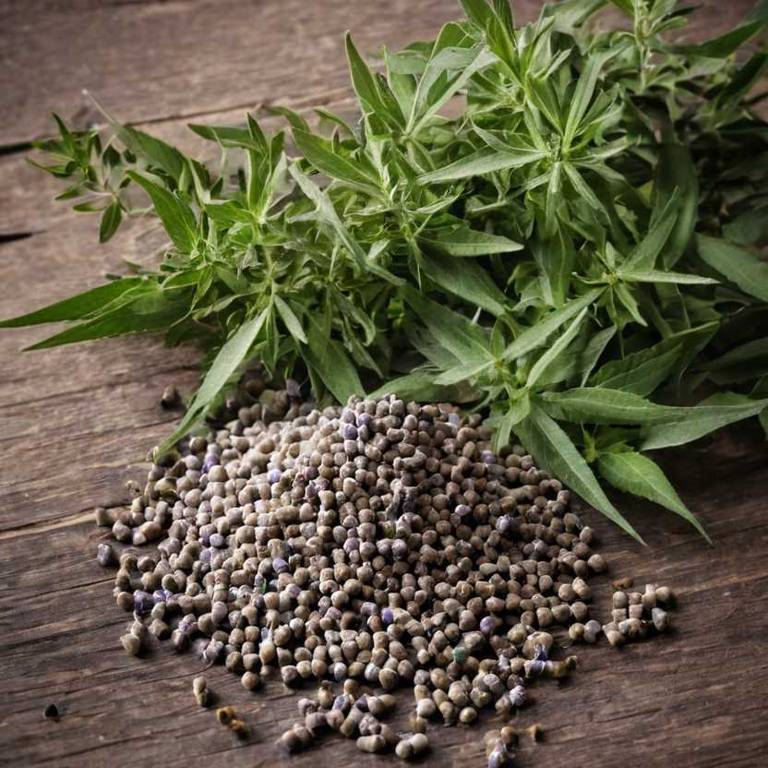Chaste Tree
Vitex agnus-castus
Ashwagandha is a prominent medicinal herb in Ayurvedic medicine, classified as a rasayana (rejuvenator). It is primarily utilized as an adaptogen to help the body manage physical and chemical stress.
Family
Solanaceae (Nightshade)
Native Region
India, Middle East, Africa
Part Used
Root, Leaf, Berry

Botanical Identification
Vitex agnus-castus, commonly known as chaste tree, belongs to the Lamiaceae family. It is a perennial shrub native to the Mediterranean region. The plant has opposite leaves, violet flowers, and is sometimes referred to as monk's pepper or vervain in herbal texts.
Active Compounds
The Chaste Tree contains key active compounds such as flavonoids, essential oils, and coumarin. These compounds work synergistically to support hormonal balance and reproductive health. Their combined action enhances the herb's efficacy in traditional herbal medicine.
- Flavonoid
- Essential oil
- Coumarin
Therapeutic Indications
| System | Condidtion | Action |
|---|---|---|
| Reproductive | Menstrual disorders, breast tenderness, menopausal symptoms | Antispasmodic, hormonal balancing, hormonal regulation, lactation suppression |
| Endocrine | Hormonal imbalance, thyroid dysfunction, hormonal imbalances, thyroid disorders | Regulatory, modulatory, hormonal regulation |
| Integumentary | Skin inflammation, acne, hormonal acne | Anti-inflammatory, antimicrobial |
Preparation Methods
Tincture: Used for menstrual disorders and hormonal imbalances.
Infusion: Used for regulating menstrual cycles and treating menopausal symptoms.
Decoction: Used for digestive issues and liver support.
Safety Profile
Chaste tree is generally considered safe when used in recommended doses. However, it may cause side effects such as nausea, headache, or breast tenderness. It should be avoided during pregnancy and by individuals with hormone-sensitive conditions due to its potential estrogenic effects.